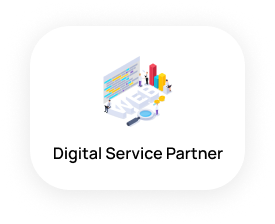CRM Systems and Chatbots
In today’s business landscape, customer relationship management (CRM) systems play a vital role in managing and nurturing customer interactions. These systems enable businesses to track customer data, enhance sales processes, and provide exceptional customer service. However, with the rising popularity of chatbots, integrating them with CRM systems has become crucial for organizations seeking to improve customer interactions and streamline operations. This blog aims to delve into the significance of integrating chatbots with CRM systems and explore the benefits, best practices, and challenges associated with this integration.
CRM systems serve as a centralized hub for managing customer data, enabling businesses to efficiently track and analyze interactions throughout the customer journey. These systems capture information such as customer preferences, purchase history, and communication records, empowering organizations to deliver personalized experiences. On the other hand, chatbots are AI-powered conversational agents designed to interact with customers in a human-like manner. They can provide instant support, answer queries, assist with transactions, and offer personalized recommendations. Integrating chatbots with CRM systems enables the seamless flow of data between the two, creating a powerful synergy that enhances customer experiences.
Need help with CRM implementation? Contact Us.
The Benefits of Integrating Chatbots with CRM Systems
Enhanced Customer Service and Support
Integrating chatbots with CRM systems allows businesses to provide round-the-clock customer support. Chatbots can handle repetitive queries, offer self-service options, and provide immediate responses to common questions. By accessing CRM data, chatbots can also offer personalized assistance, such as order status updates or recommendations based on previous purchases. This enhanced customer service leads to higher satisfaction levels and reduces the burden on human support agents.
Improved Lead Generation and Conversion
Chatbots integrated with CRM systems can engage with potential customers at various touchpoints, collecting valuable lead information in real time. By qualifying leads and capturing contact details, chatbots can seamlessly transfer prospects to sales teams for follow-up. The integration ensures that the lead data is instantly recorded within the CRM system, enabling efficient lead nurturing and increasing the chances of conversion.
Personalized Customer Interactions
Integrating chatbots with CRM systems allows for a deeper understanding of customers’ preferences, purchase history, and behavioral patterns. Armed with this knowledge, chatbots can deliver personalized recommendations, targeted promotions, and tailored content to customers. By offering relevant and personalized experiences, businesses can foster customer loyalty and drive repeat purchases.
Streamlined Data Collection and Analysis
Chatbot-CRM integration automates the collection and organization of customer data, eliminating the need for manual data entry. As chatbots interact with customers, they capture valuable information, which is then seamlessly synchronized with the CRM system. This automated data collection reduces errors and ensures data consistency, enabling businesses to gain valuable insights and make data-driven decisions for marketing, sales, and customer service strategies.
24/7 Availability and Scalability
Integrating chatbots with CRM systems provides businesses with the advantage of 24/7 availability. Unlike human agents who have limited working hours, chatbots can handle customer inquiries at any time, across different time zones. Moreover, chatbots can handle multiple conversations simultaneously, ensuring scalability and reducing customer wait times. This availability and scalability contribute to improved customer satisfaction and increased operational efficiency.
Best Practices for Integrating Chatbots with CRM Systems
Define Clear Objectives and Use Cases
Before integrating chatbots with CRM systems, it is crucial to define clear objectives and identify specific use cases. Determine the tasks and interactions that chatbots will handle, such as lead qualification, customer support, or order tracking. Aligning chatbot functionalities with business goals ensures targeted and effective integrations.
Seamless Data Integration and Synchronization
To ensure a successful integration, it is essential to establish a seamless flow of data between the chatbot and CRM systems. This involves mapping the data fields, establishing data synchronization processes, and implementing APIs or integration tools that facilitate real-time data exchange. By integrating the systems effectively, businesses can ensure accurate and up-to-date customer information across platforms.
Customization and Personalization
Every business has unique customer interactions and requirements. It is crucial to customize the chatbot’s behavior and responses to align with the brand’s tone, style, and specific customer needs. By tailoring the chatbot’s interactions, businesses can create a more personalized experience for customers, fostering a stronger connection and increasing engagement.
Continuous Monitoring and Improvement
The integration of chatbots with CRM systems is an ongoing process that requires continuous monitoring and improvement. Regularly analyze the chatbot’s performance, track customer interactions, and collect feedback to identify areas for enhancement. Utilize analytics and reporting tools to gain insights into customer behavior and optimize the chatbot’s effectiveness in meeting customer needs.
Overcoming Challenges with Chatbot to CRM Integration
Data Privacy and Security Concerns
Integrating chatbots with CRM systems involves handling sensitive customer data. It is crucial to prioritize data privacy and security. Implement measures such as encryption, access controls, and compliance with data protection regulations to safeguard customer information and maintain their trust.
Ensuring Seamless User Experience
A seamless user experience is paramount in chatbot-CRM integration. The chatbot should provide clear and concise responses, understand user intent accurately, and handle complex conversations smoothly. It is essential to invest in natural language processing (NLP) capabilities and employ user testing to refine the chatbot’s performance and ensure a seamless user experience.
Managing Complex Conversations and Context Switching
In some cases, chatbot interactions may require handling complex conversations or context switching. It is important to design the chatbot’s conversational flow to handle such scenarios effectively. Implement techniques like session management and context preservation to ensure a cohesive and coherent conversation, even when customers switch topics or engage in multi-step interactions.
Integration with Existing Systems and Infrastructure
Integrating chatbots with CRM systems may require compatibility with existing infrastructure and systems. It is crucial to evaluate the integration capabilities of both the chatbot platform and the CRM system. Leverage APIs, webhooks, or middleware solutions to establish smooth integration, ensuring that the chatbot seamlessly interacts with other systems and processes within the organization.
Conclusion
Integrating chatbots with CRM systems offers numerous benefits for businesses, ranging from enhanced customer service and support to improved lead generation and conversion rates. By seamlessly connecting chatbots with CRM systems, businesses can provide personalized customer interactions, streamline data collection and analysis, and ensure availability and scalability. However, this integration also poses challenges such as data privacy, user experience, complex conversations, and integration with existing systems. By following best practices and overcoming these challenges, organizations can leverage chatbot-CRM integration to deliver exceptional customer experiences and drive business growth in the digital era.
Leveraging this technology can take your business operations and customer satisfaction to new heights. Don’t let your business lag behind in this era of technological advancement. Partner with Ubique Digital Solutions today and harness the power of chatbot CRM integration to unlock new growth opportunities for your business. We offer robust solutions tailored to your unique needs, helping you boost efficiency and increase profitability. So, don’t wait. Connect with us today and propel your business toward success.
FAQs
Q: What is a CRM system, and how does it work?
A CRM system is a technology platform that helps businesses manage customer relationships, track interactions, and streamline sales and marketing processes. It centralizes customer data, providing insights to improve customer experiences and drive business growth.
Q: What are chatbots, and how do they interact with customers?
Chatbots are AI-powered conversational agents that interact with customers through text or voice-based conversations. They can provide information, answer queries, assist with transactions, and perform various tasks, simulating human-like interactions.






















